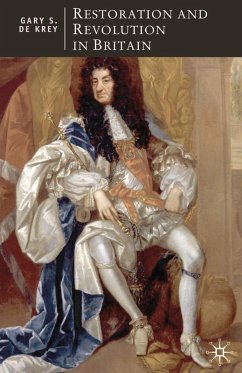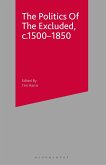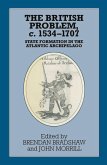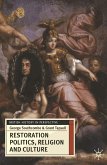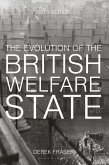Charles II was restored to the rule of England, Scotland and Ireland in 1660, less than twelve years after the execution of his father, Charles I, and the ensuing republican experiment in government. Popular at first, the Restoration nevertheless failed to provide lasting settlement in any of the British kingdoms.
Restoration and Revolution in Britain examines the political history of these kingdoms, from the Interregnum through Britain's eighteenth-century rise to power. Written especially for students approaching the Restoration for the first time, this essential introduction:
- Assesses the reasons for the failure of settlement in the reigns of Charles and of his brother, James II
- Integrates the histories of Charles's different realms
- Examines the many connections between politics and Protestant religious disagreements
- Provides helpful historical context for understanding a range of contemporary authors such as Bunyan, Locke and Milton
- Concludes with an examination of the Glorious Revolution of 1688-89 and explains why settlement was finally achieved through revolution rather than through restoration
Restoration and Revolution in Britain examines the political history of these kingdoms, from the Interregnum through Britain's eighteenth-century rise to power. Written especially for students approaching the Restoration for the first time, this essential introduction:
- Assesses the reasons for the failure of settlement in the reigns of Charles and of his brother, James II
- Integrates the histories of Charles's different realms
- Examines the many connections between politics and Protestant religious disagreements
- Provides helpful historical context for understanding a range of contemporary authors such as Bunyan, Locke and Milton
- Concludes with an examination of the Glorious Revolution of 1688-89 and explains why settlement was finally achieved through revolution rather than through restoration

